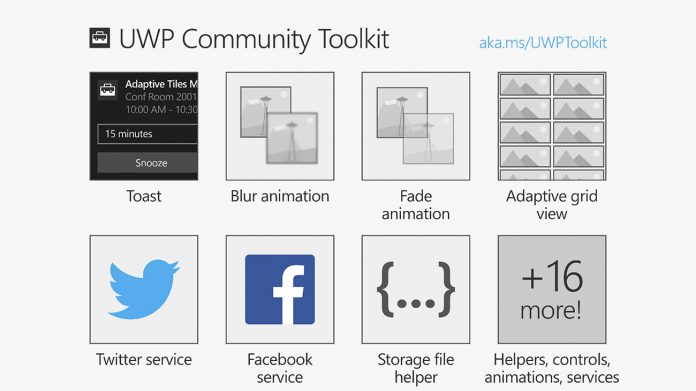Microsoft yesterday rolled out a new update for the Windows Community Toolkit. The release brought the service up to version 3.0 and adds some important new features. In fact, this is one of the biggest updates we have seen for the platform yet.
The toolkit entirely open-source project that lets the developer community collaborate to introduce new capabilities on top the SDK. By removing code, the service makes it easy for even development newbies to create UWP content.
Loaded with new features, Windows Community Toolkit users will find plenty to like in version 3.0. Among the most notable additions are Edge WebView, new controls for accessing Microsoft Graph, and eye gaze APIs.
As usual, Microsoft has provided a changelog for the update:
- A new package for WPF and WinForms developers that includes the new Edge WebView
- New package for all XAML UWP developer to enable usage of eye gaze APIs in XAML
- A new package for all .NET UWP developers to help in writing runtime API checks
- A new package introducing new controls to access the Microsoft Graph
- New controls and APIs in existing packages
- Fluent updates to existing controls with support for light and dark theme
- Updated documentation, including code examples in Visual Basic
- Many improvements and bug fixes
Eye Control in Windows
Developers now have access to Microsoft’s eye control APIs for Windows 10 and UWP applications. This assistive technology allows dev’s to put eye control into their creations. Users can navigate and control Windows and applications through eye movement.
This was introduced with the Windows 10 April 2018 Update.
“Eye Control makes Windows 10 more accessible by empowering people with disabilities to operate an onscreen mouse, keyboard, and text-to-speech experience using only their eyes. The experience requires a compatible eye tracker, like the Tobii 4C, which unlocks access to the Windows operating system to be able to do the tasks one could previously accomplish with a physical mouse and keyboard.”





